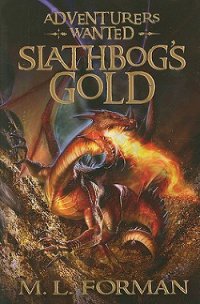Farewell, My Lovely - Chandler Raymond (книги онлайн полные версии бесплатно txt) 📗
I cut the noiseless motor, dimmed the lights and sat there, listening. Nothing. I switched the light off altogether and got out of the car. The crickets stopped chirping. For a little while the silence was so complete that I could hear the sound of tires on the highway at the bottom of the cliffs, a mile away. Then one by one the crickets started up again until the night was full of them.
“Sit tight. I’m going down there and have a look see,” I whispered into the back of the car.
I touched the gun butt inside my coat and walked forward. There was more room between the brush and the end of the white barrier than there had seemed to be from the car. Someone had hacked the brush away and there were car marks in the dirt. Probably kids going down there to neck on warm nights. I went on past the barrier. The road dropped and curved. Below was darkness and a vague far off sea-sound. And the lights of cars on the highway. I went on. The road ended in a shallow bowl entirely surrounded by brush. It was empty. There seemed to be no way into it but the way I had come. I stood there in the silence and listened.
Minute passed slowly after minute, but I kept on waiting for some new sound. None came. I seemed to have that hollow entirely to myself.
I looked across to the lighted beach club. From its upper windows a man with a good night glass could probably cover this spot fairly well. He could see a car come and go, see who got out of it, whether there was a group of men or just one. Sitting in a dark room with a good night glass you can see a lot more detail than you would think possible.
I turned to go back up the hill. From the base of a bush a cricket chirped loud enough to make me jump. I went on up around the curve and past the white barricade. Still nothing. The black car stood dimly shining against a grayness which was neither darkness nor light. I went over to it and put a foot on the running board beside the driver’s seat.
“Looks like a tryout,” I said under my breath, but loud enough for Marriott to hear me from the back of the car. “Just to see if you obey orders.”
There was a vague movement behind but he didn’t answer. I went on trying to see something besides bushes.
Whoever it was had a nice easy shot at the back of my head. Afterwards I thought I might have heard the swish of a sap. Maybe you always think that — afterwards.
10
“Four minutes,” the voice said. “Five, possibly six. They must have moved quick and quiet. He didn’t even let out a yell.”
I opened my eyes and looked fuzzily at a cold star. I was lying on my back. I felt sick.
The voice said: “It could have been a little longer. Maybe even eight minutes altogether. They must have been in the brush, right where the car stopped. The guy scared easily. They must have thrown a small light in his face and he passed out — just from panic. The pansy.”
There was silence. I got up on one knee. Pains shot from the back of my head clear to my ankles.
“Then one of them got into the car,” the voice said, “and waited for you to come back. The others hid again. They must have figured he would be afraid to come alone. Or something in his voice made them suspicious, when they talked to him on the phone.”
I balanced myself woozily on the flat of my hands, listening.
“Yeah, that was about how it was,” the voice said.
It was my voice. I was talking to myself, coming out of it. I was trying to figure the thing out subconsciously.
“Shut up, you dimwit,” I said, and stopped talking to myself.
Far off the purl of motors, nearer the chirp of crickets, the peculiar long drawn ee-ee-ee of tree frogs. I didn’t think I was going to like those sounds any more.
I lifted a hand off the ground and tried to shake the sticky sage ooze off it, then rubbed it on the side of my coat. Nice work, for a hundred dollars. The hand jumped at the inside pocket of the overcoat. No manila envelope, naturally. The hand jumped inside my own suit coat. My wallet was still there. I wondered if my hundred was still in it. Probably not. Something felt heavy against my left ribs. The gun in the shoulder holster.
That was a nice touch. They left me my gun. A nice touch of something or other — like closing a man’s eyes after you knife him.
I felt the back of my head. My hat was still on. I took it off, not without discomfort and felt the head underneath. Good old head, I’d had it a long time. It was a little soft now, a little pulpy, and more than a little tender. But a pretty light sapping at that. The hat had helped. I could still use the head. I could use it another year anyway.
I put my right hand back on the ground and took the left off and swivelled it around until I could see my watch. The illuminated dial showed 10.56, as nearly as I could focus on it.
The call had come at 10.08. Marriott had talked maybe two minutes. Another four had got us out of the house. Time passes very slowly when you are actually doing something. I mean, you can go through a lot of movements in very few minutes. Is that what I mean? What the hell do I care what I mean? Okey, better men than me have meant less. Okey, what I mean is, that would be 10.15, say. The place was about twelve minutes away. 10.27. I get out, walk down in the hollow, spend at the most eight minutes fooling around and come on back up to get my head treated. 10.35. Give me a minute to fall down and hit the ground with my face. The reason I hit it with my face, I got my chin scraped. It hurts. It feels scraped. That way I know it’s scraped. No, I can’t see it. I don’t have to see it. It’s my chin and I know whether it’s scraped or not. Maybe you want to make something of it. Okey, shut up and let me think. What with? . . .
The watch showed 10.56 p.m. That meant I had been out for twenty minutes.
Twenty minutes’ sleep. Just a nice doze. In that time I had muffed a job and lost eight thousand dollars. Well, why not? In twenty minutes you can sink a battleship, down three or four planes, hold a double execution. You can die, get married, get fired and find a new job, have a tooth pulled, have your tonsils out. In twenty minutes you can even get up in the morning. You can get a glass of water at a night club — maybe.
Twenty minutes’ sleep. That’s a long time. Especially on a cold night, out in the open. I began to shiver.
I was still on my knees. The smell of the sage was beginning to bother me. The sticky ooze from which wild bees get their honey. Honey was sweet, much too sweet. My stomach took a whirl. I clamped my teeth tight and just managed to keep it down my throat. Cold sweat stood out in lumps on my forehead, but I shivered just the same. I got up on one foot, then on both feet, straightened up, wobbling a little. I felt like an amputated leg.
I turned slowly. The car was gone. The dirt road stretched empty, back up the shallow hill towards the paved street, the end of Camino de la Costa. To the left the barrier of white-painted four-by-fours stood out against the darkness. Beyond the low wall of brush the pale glow in the sky would be the lights of Bay City. And over farther to the right and near by were the lights of the Belvedere Club.
I went over where the car had stood and got a fountain pen flash unclipped from my pocket and poked the little light down at the ground. The soil was red loam, very hard in dry weather, but the weather was not bone dry. There was a little fog in the air, and enough of the moisture had settled on the surface of the ground to show where the car had stood. I could see, very faint, the tread marks of the heavy ten-ply Vogue tires. I put the light on them and bent over and the pain made my head dizzy. I started to follow the tracks. They went straight ahead for a dozen feet, then swung over to the left. They didn’t turn, They went towards the gap at the left hand end of the white barricade. Then I lost them.




